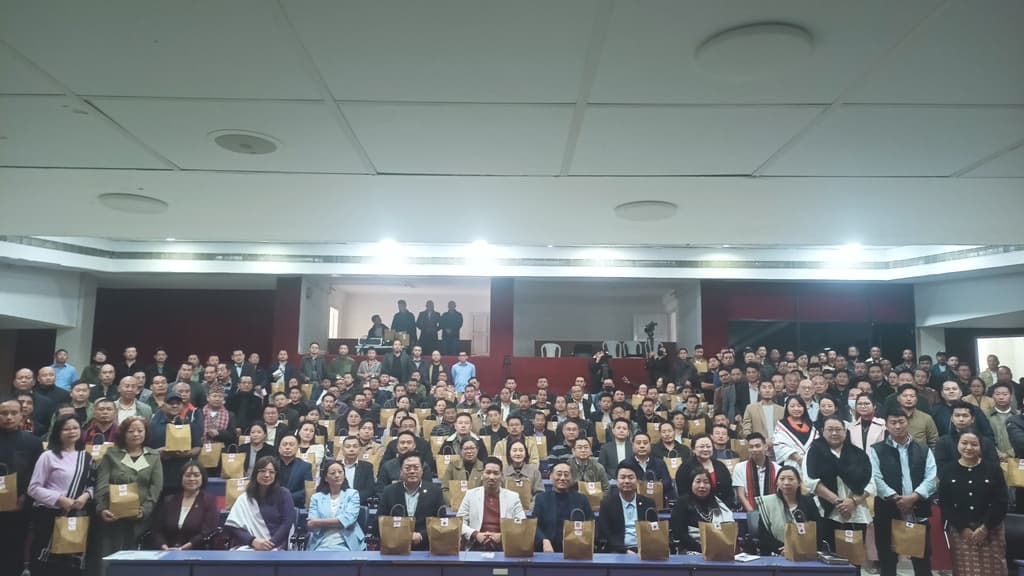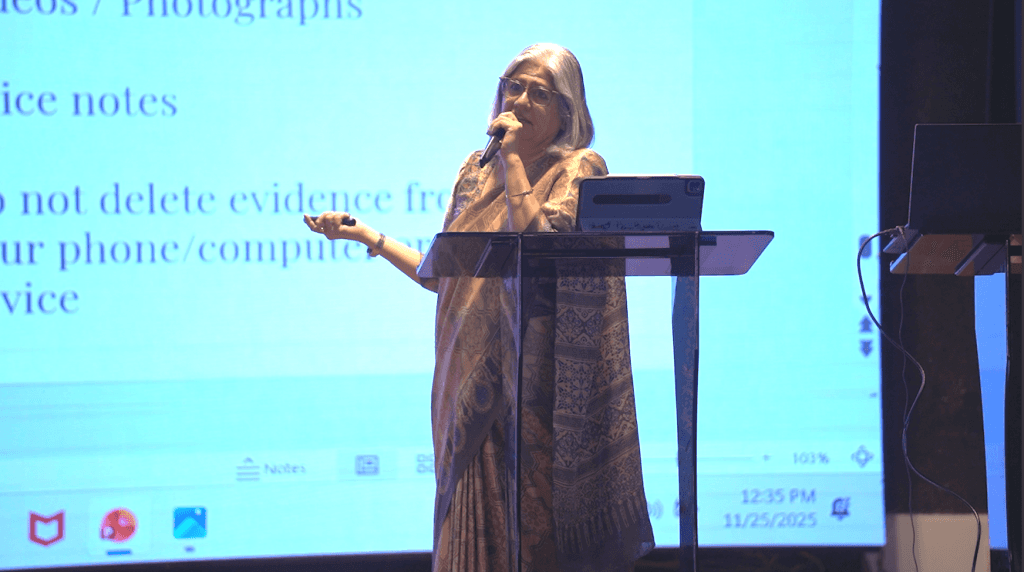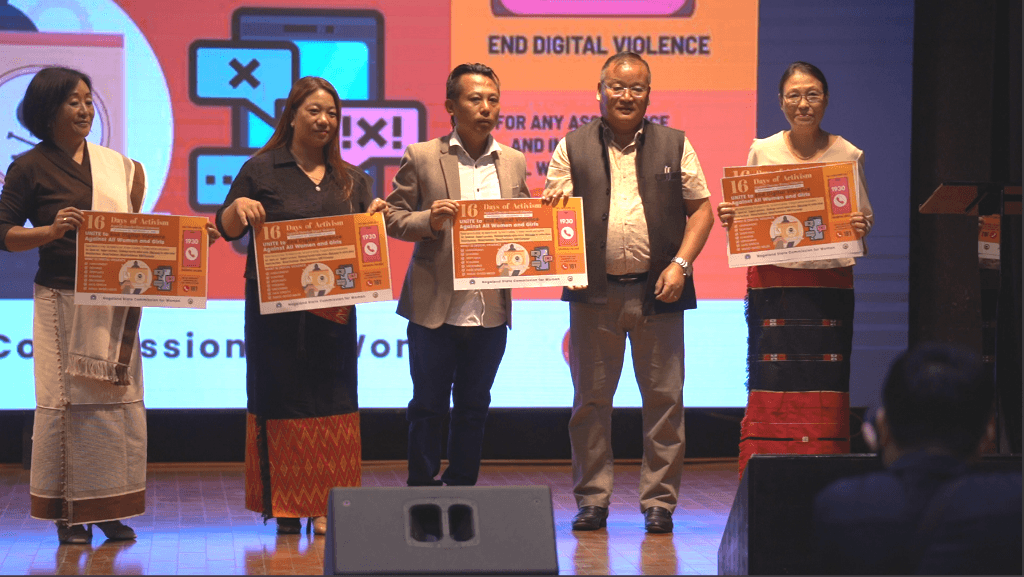Nagaland marked the International Day for the Elimination of Violence Against Women with strong warnings on rising abuse, including digital violence, and renewed calls for collective action.
Share

KOHIMA/DIMAPUR — Nagaland on Tuesday observed the International Day for the Elimination of Violence against Women with warnings from officials and experts about the rising cases of abuse, including digital violence, and renewed calls for collective responsibility to ensure safety for women and girls across the state.
The events in Kohima and Dimapur also marked the launch of the global 16 Days of Activism campaign.
‘A wake-up call for Nagaland’
In Kohima, Advisor for Social Welfare Wangpang Konyak described the recent incidents of crimes against women in the state capital as a “wake-up call,” stressing that violence against women is “not merely a women’s issue but a human issue.”
Also read: NSCW counsel flags repeated adjournments in case against IAS officer Reny Wilfred
Speaking at the programme organised at the Capital Convention Centre — which also marked the launch of the 16 Days of Activism and the inauguration of Nagaland’s first Gender Resource Centre — Konyak said the state must treat this moment as “the beginning of a collective journey” to ensure that no woman or girl lives in fear because of her gender.

Citing global data that one in three women faces physical or sexual violence, he noted that Nagaland, too, has witnessed an alarming rise in reported cases, with Mission Shakti One Stop Centres and Women Helpline-181 continuing to receive cases, many anonymously due to stigma.
“As a Christian state and as communities that hold women in high regard, this rise in violence casts a dark shadow on our society,” he said, adding that violence continues not only in homes but in workplaces, villages and public spaces. He urged men to participate actively in the HeForShe movement. “Real men do not raise their hands against women. Real men raise their voices with women,” he said.
He congratulated NSRLM for expanding Gender Resource Centres to seven new RD blocks and said the new centre would function as a safe space for survivors and a training hub for institutions across the state. “This is not just a building — it is the birthplace of a movement of respect and care,” he added.
Delivering the keynote address, Limawabang Jamir, Secretary and Administrative Head of the Social Welfare department, highlighted the participation of men in the programme and stressed that gender-based violence must be addressed collectively. He said Mission Shakti’s One Stop Centres have handled 1,703 cases till October 25 and the 181 Women Helpline has attended to 3,396 calls since 2016.
Jamir also highlighted the role of SheBox for workplace harassment complaints and said sensitising men is essential, as most perpetrators are male.

Rise of digital abuse
In Dimapur, Supreme Court advocate Vrinda Grover underscored the growing threat of digital violence, saying the rapid shift of abuse into online spaces has created new challenges that disproportionately endanger women and girls.
Speaking at the Town Hall during the campaign launch organised by the Nagaland State Commission for Women with the district administration and Mission Shakti, she said that advances in technology have “enabled anonymity and distance,” making online harassment, cyber-stalking, misinformation, defamation and deepfake-based abuse increasingly common.
Citing global findings such as 73% of women journalists facing online abuse, Grover said non-consensual intimate imagery (NCII) and deepfake technology now pose a serious risk to minors and young women. She referenced the “Sulli Deals” and “Bulli Bai” cases, pointing out that many perpetrators were between 18 and 26 years old, revealing deep-rooted misogyny in digital spaces.
Grover also emphasised the importance of Zero FIR, the National Cyber Crime Reporting Portal, and proper handling of digital evidence. She said that while technology will continue to outpace legal frameworks, India still has robust laws and reporting mechanisms in place. However, meaningful prevention must address inequality and discrimination which are the root causes of all violence, she said, urging women and families not to remain silent.
Deputy Commissioner of Dimapur, Dr. Tinojongshi Chang, said November 25 serves as a reminder of a global crisis. “Fear shapes the daily lives of many women, influencing how they dress, where they walk and what they say,” he said, adding that ending violence requires collective responsibility.
“When a survivor speaks up, the least society can do is believe her,” he added.
Stressing the importance of education, counselling and community engagement in changing mindsets, he said that empowered and economically independent women are better placed to break cycles of abuse.

NSCW Chairperson W Nginyeih Konyak highlighted the campaign’s focus on digital safety, marking the 30th anniversary of the Beijing Declaration, and called on government agencies, civil society groups, the private sector, educational institutions and individuals to speak out against harmful behaviour and support survivors.
Chang later launched the UNiTE campaign and a poster initiative, which was handed over to the Dimapur District Auto Drivers Union for wider dissemination. The 16 Days of Activism will conclude on December 10.